Nigeria, once celebrated as the “Giant of Africa,” is now grappling with a severe food security crisis. This situation has caused the country to earn negative labels or descriptions, such as “world’s poverty capital”. It reflects most of its citizens are in the grip of hunger and poverty.
Hussaini Kafi in Kano who evaluated the development in this report, based on its impact on the northern region in particular, posited that Nigeria is a nation at a crossroads.
Hunger Takes Toll on Northern Region of Nigeria
In the country’s Northwest and Northeast regions, millions face hunger as armed conflict, climate change, and poor policy implementation take their toll. Farmers are unable to access their lands, food prices are skyrocketing, and the situation threatens the stability of a nation already strained by insecurity.
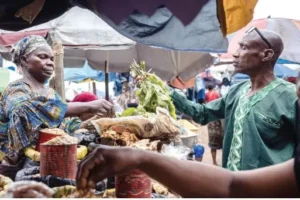
The crisis, described by experts as a perfect storm of insecurity and environmental challenges, has forced Nigeria to confront its vulnerability. Addressing these issues requires a combination of immediate action and long-term strategies. However, for many affected farmers, the solution begins with one word: security.
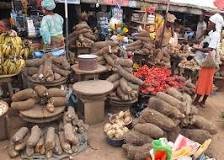
A Land Held Hostage: Voices from the Fields
In Gubio, a farming community in Borno State, Hamza Ahmad reflects on his family’s plight. “We used to produce enough food to feed ourselves and sell in the market. But now, fear keeps us from farming. Even when we plant, the floods or terrorists of Boko Haram destroy everything.”

In Zurmi, Zamfara State, Abdullahi Bello shares a similar struggle. “The bandits have taken over our lives. We cannot farm without risking death. Hunger has become our reality.”
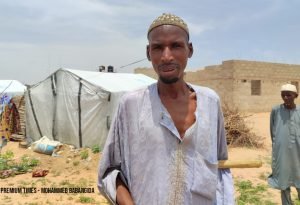
Farmers across the Northwest and Northeast are caught in a cycle of despair. Fields once brimming with crops now lie fallow, either abandoned due to violence or destroyed by extreme weather. These regions, critical to Nigeria’s food production, are rapidly losing their capacity to feed the nation.

Africa Health Report (AHR) gathered that the psychological toll of insecurity is equally devastating. Many farmers suffer from depression and anxiety as they grapple with the uncertainty of their livelihoods. Experts warn that this mental health burden, if left unaddressed, could undermine efforts to rebuild the agricultural sector.
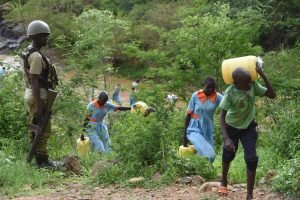
The Expert’s View: Breaking the Cycle
Dr. Zainab Usman, an agricultural economist at the Aliko Dangote University of Science and Technology, Wudil, argues that Nigeria’s food crisis stems from a combination of insecurity, climate change, and weak infrastructure. “Farmers are at the center of this crisis, but they’re also the key to solving it. Without security, they cannot work. Without investment in climate-resilient farming, their efforts will fail.”
AHR gathered that farmers in conflict-prone areas are particularly vulnerable to market disruptions. The lack of access to affordable seeds, fertilizers, and other inputs exacerbates the crisis. Dr. Usman emphasizes the need for a multifaceted approach: “We need immediate security measures, yes, but we must also think long-term. Farmers need access to drought-resistant crops, modern irrigation systems, and market infrastructure. These investments are not just about agriculture—they’re about national survival.”
Reclaiming the Land: Security as the Foundation
Security is the linchpin of Nigeria’s food security strategy. Major General (retired) Hassan Ibrahim believes that a robust security framework is critical to restoring confidence in farming communities.
“The government must deploy more resources to secure rural areas,” General Ibrahim says. “But it’s not just about boots on the ground. Community-based security systems, where locals are involved in intelligence gathering, can create a sense of ownership and trust.”
Technology, such as drones and surveillance systems, could also enhance monitoring in remote areas. AHR learned that some local governments are already piloting these technologies, but scaling them up remains a challenge due to funding constraints.
Operation Empty Stores: A Step Towards Hope
However, In line with the vision of the Renewed Hope Agenda under President Bola Ahmed Tinubu, which focuses on promoting agricultural development and improving food security, the Federal Government is set to launch a nationwide initiative titled “Operation Empty Stores.” This program, spearheaded by the Federal Ministry of Agriculture and Food Security, aims to distribute farm equipment and inputs lying idle in ministry stores to farmers across the federation and the Federal Capital Territory (FCT).
Dr. Markus Ogunbiyi, Permanent Secretary of the Ministry, announced this initiative during a workshop in Abuja themed “Building Partnership with the Media for Food Security.” He emphasized that the program will enhance food production and foster collaboration between the government, media, and agricultural stakeholders.
AHR gathered that Operation Empty Stores will empower 50,000 farmers nationwide starting February 2025. Each state, including the FCT, will have 1,500 beneficiaries who will receive agricultural inputs and implements. Furthermore, the ministry plans to launch the National Electronic Extension Platform (NEEP), a digital tool to improve communication and accessibility for farmers.
Building Resilience: Adapting to Climate Change
Even with security, farmers face another formidable challenge: climate change. Erratic rainfall, droughts, and floods have become common, leaving farmers at the mercy of nature.
“Climate change is no longer a distant threat—it’s here,” Dr. Usman, asserts. “We need to adopt climate-smart farming practices. This includes drought-resistant crops, efficient irrigation, and early warning systems for extreme weather.”
AHR gathered that reforestation and soil conservation projects are gaining traction in parts of the north, but experts warn that these efforts need to be scaled up urgently. Insurance schemes tailored for farmers could also provide a financial safety net, helping them recover from climate-related losses.
The Road Ahead: A National Imperative
Nigeria’s food security crisis is a test of the nation’s resilience and leadership. Addressing it will require a comprehensive approach: securing rural communities, investing in agriculture, and adapting to climate change.
Programs like Operation Empty Stores and innovations such as NEEP demonstrate that progress is possible with coordinated efforts. However, political will and accountability remain critical to translating these initiatives into tangible results.
As Dr. Usman puts it, “This crisis is not just about food; it’s about our future. If we fail to act, the consequences will be felt for generations.”
Nigeria stands at a crossroads. The path it chooses will determine whether it can feed its people and restore hope to its farmers—or whether hunger and insecurity will continue to hold the nation hostage.

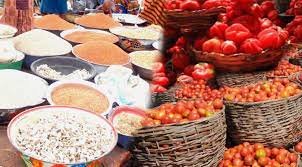

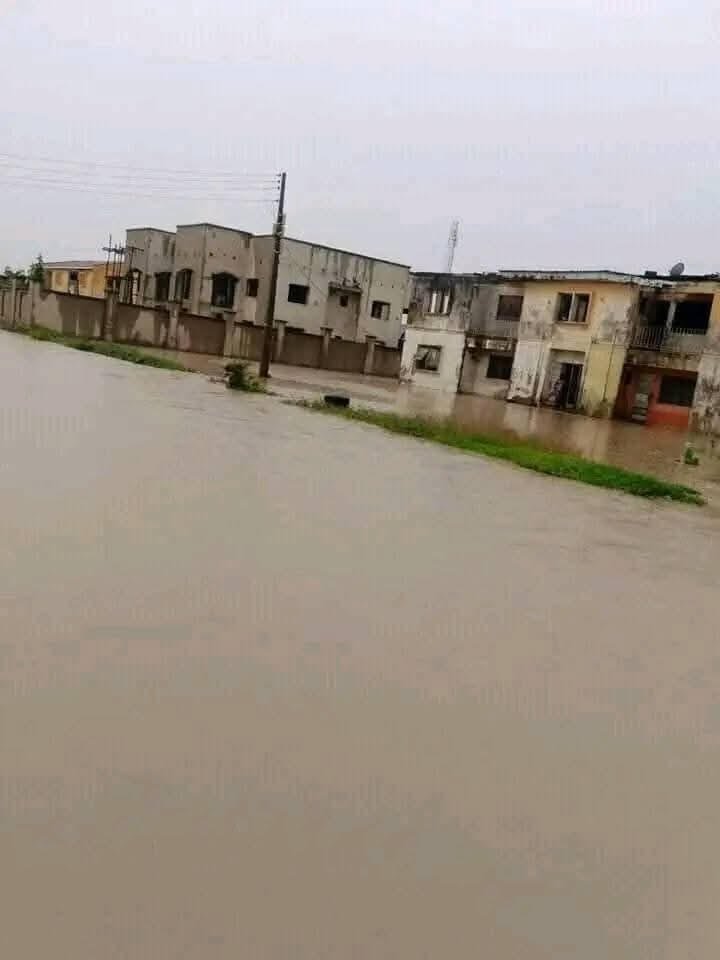
I do trust all the ideas youve presented in your post They are really convincing and will definitely work Nonetheless the posts are too short for newbies May just you please lengthen them a bit from next time Thank you for the post